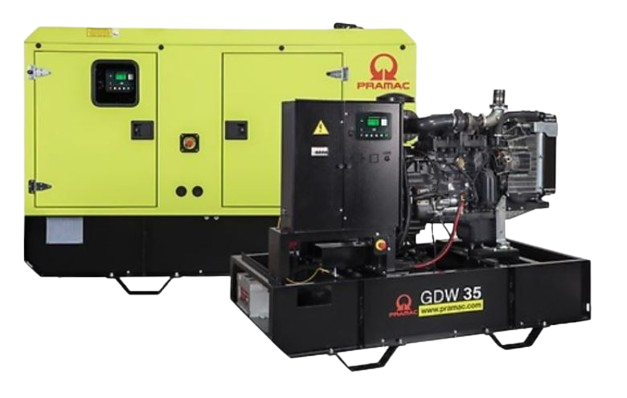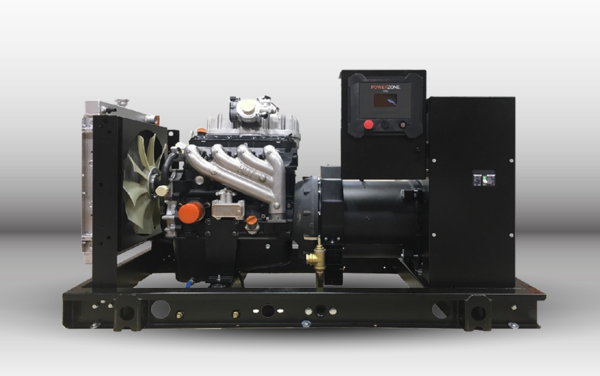When it comes to selecting a generator for your needs, safety is a paramount concern. With various options available, two of the most popular choices are diesel generators and gas generators. Understanding the safety implications of each can help you make a more informed decision. In this article, we will delve into a head-to-head comparison of diesel fueled generators and gas powered generators, exploring aspects such as fuel characteristics, operational safety, maintenance requirements and real-world safety considerations.
Diesel generators are widely favored for their reliability, efficiency and long service life. Operating on diesel fuel, they provide a higher energy density compared to gasoline, making them suitable for heavy-duty applications. Diesel fueled generators are commonly used in commercial and industrial settings, offering superior performance in continuous power supply scenarios. They are known for their robustness, capable of running for extended periods without interruption. Additionally, diesel generators require less frequent refueling and have a longer lifespan than their gas counterparts, making them a cost-effective solution over time. Regular diesel generator maintenance is crucial to ensure safety and optimal performance.


Gas generators, including LP gas generators and gas powered generators, are popular for residential and light commercial applications due to their ease of use and lower initial costs. They are typically powered by natural gas or propane, making them cleaner-burning alternatives to diesel generators. With simpler engines, gas generators require less maintenance, allowing for more accessible operation for everyday users. Their lightweight design and portability make them suitable for various applications, from outdoor events to backup power at home. However, users must be aware of the risks associated with gas leaks, ensuring proper ventilation and safety measures when using these generators.
One of the most critical safety considerations when comparing diesel and gas generators is flammability. Diesel fuel has a higher flash point (around 126°F or 52°C) than gasoline, which has a flash point of about 100°F (38°C). This means that diesel is less likely to ignite in normal operating conditions, reducing the risk of accidental fires. In contrast, gas powered generators may pose a higher risk of combustion, particularly in environments where leaks can occur.
Both diesel generators and gas generators emit pollutants, but the nature and level of these emissions differ significantly. Diesel generators are known for producing higher levels of nitrogen oxides (NOx) and particulate matter, which can pose health risks, especially with prolonged exposure. However, advancements in diesel generator technology have improved emissions control, leading to cleaner operation.
Conversely, gas generators typically produce fewer harmful emissions. LP gas generators, for example, burn cleaner than their diesel counterparts, emitting lower levels of CO2 and NOx. This makes them a more environmentally friendly option, but it’s crucial to note that they can produce carbon monoxide (CO), which is highly toxic in enclosed spaces. Therefore, adequate ventilation is essential when using gas powered generators to mitigate health risks.
The risk of fuel spills and leaks is another significant safety concern when evaluating diesel generators and gas generators. Diesel fuel is less volatile, making spills less likely to result in immediate fires. However, spills can still create slippery surfaces and environmental hazards, especially if not managed properly.
Gas generators, particularly those using LP gas, can pose an increased risk if there is a leak. Gas is more prone to vaporization and can accumulate in enclosed spaces, creating an explosive atmosphere. For this reason, it is crucial to install gas detectors in areas where gas powered generators are used and to conduct regular inspections for leaks.
Both types of generators generate heat during operation, but the operating temperatures can vary. Diesel generators generally run at higher temperatures than gas generators, which can lead to overheating if not adequately maintained. This increases the risk of component failure and potential fires. Proper ventilation and regular maintenance, such as diesel generator maintenance, are critical to ensuring safe operation.
Maintenance requirements differ between diesel generators and gas generators. Diesel generators often require more frequent servicing due to their complex engine systems and the buildup of carbon deposits from combustion. An annual maintenance contract for diesel generator is often recommended to ensure safety and efficiency. Regular checks on fuel filters, oil levels, and cooling systems can prevent malfunctions that could lead to hazardous situations.
Gas powered generators typically have simpler engines and may require less maintenance. However, regular checks are still necessary to ensure safe operation. Users should be vigilant about inspecting hoses and connections for leaks and ensuring that exhaust systems are functioning correctly.
Reliability is another factor in the safety comparison. Diesel generators are renowned for their durability and long lifespan, often outlasting gas generators when properly maintained. This reliability is crucial for critical applications, such as emergency power supply, where failure can lead to severe consequences. Conversely, gas generators may have higher failure rates due to their simpler design, which can lead to unexpected downtime.
User training plays a significant role in ensuring the safe operation of both diesel generators and gas generators. Proper training can mitigate risks associated with improper handling, such as fuel spills, electrical hazards, and maintenance oversights. It is vital that operators understand the specific safety protocols for the generator type they are using.
Both diesel generators and gas generators come with manufacturer-recommended safety protocols that must be adhered to. For diesel generators, this may include proper fueling procedures, regular maintenance schedules, and emergency shutdown procedures. Gas powered generators should have safety protocols in place for detecting gas leaks, proper ventilation, and emergency response actions.
Both diesel generators and gas generators must adhere to environmental regulations, which can impact their safety profiles. Diesel generators are subject to stringent emission controls in many regions, particularly in the UK, where legislation aims to reduce pollution. Compliance with these regulations not only helps protect the environment but also ensures safer operation.
Gas generators often face fewer restrictions but still need to comply with local safety standards. Understanding these regulations is crucial for operators, as non-compliance can result in fines and increased safety risks.
The safety of a generator also extends to its impact on surrounding areas. Diesel generators, while more robust, can produce significant noise and emissions, potentially affecting nearby residents and wildlife. Gas generators, while quieter and cleaner, still pose risks related to gas leaks. Operators must consider the surrounding environment when selecting a generator type.
Examining real-world incidents can provide valuable insights into the safety of diesel generators and gas generators. For instance, there have been instances of catastrophic failures in gas generators due to undetected leaks, resulting in explosions. Conversely, diesel generator failures often stem from inadequate maintenance, leading to overheating and fires.
When comparing diesel generators and gas generators in terms of safety, several factors come into play, including fuel characteristics, operational safety, maintenance needs, and environmental considerations. Diesel generators, while generally safer regarding flammability and operational reliability, require diligent maintenance to ensure safety. Gas generators offer cleaner emissions and lower flammability risks but pose hazards related to gas leaks.
Ultimately, the choice between a portable diesel generator and a gas powered generator should be based on specific needs, operational environments, and safety considerations. Regardless of the choice, ensuring regular maintenance and adherence to safety protocols is vital for safe and efficient operation.
WE’RE ALL ENGINEERS HERE…
We only work with a group of tried and trusted suppliers and use the most reliable and effective equipment – which doesn’t always mean the most expensive. And, as controls and systems are continually changing, we keep abreast of all the latest developments to provide you with robust long-term solutions.